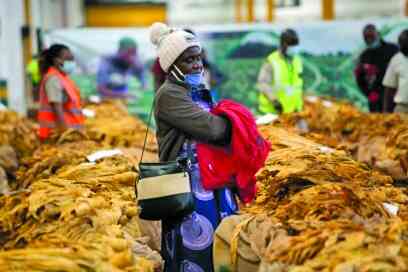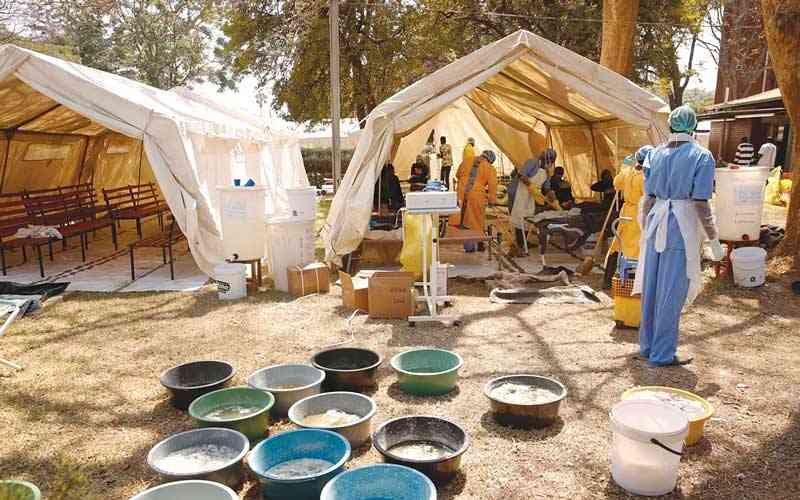
THE 2024 tobacco marketing season opened yesterday amid expectations from farmers of better returns on their crop after toiling throughout the season.
The marketing season comes amid projections of a decline in output due to the El-Nino-induced drought and a drop in the number of tobacco growers to 115 114 from 148 300 recorded in the prior year.
Estimates show that output will be around 235 million kilogrammes, down from a record-breaking 296,2 million kg last year.
The sale of the golden leaf, one of the country’s single largest foreign currency earners, will spur on other downstream industries like packing, seed and chemicals.
However, the farmers that have toiled throughout the season are getting the short end of the stick due to funding constraints that have left growers at the mercy of contractors who underprice the crop such that when deductions are made, farmers are left with negative balances.
Resultantly, farmers are forced to rely on contractors for inputs. It is a vicious cycle of poverty.
The growth of contract system has left the auction system on the edge. The auction system is there in name as it is accounting for about a fifth of the tobacco sold in a season.
The 2024 marketing season will have two auction floors —Tobacco Sales Floor and Premier Tobacco Auction Floor. At its peak, Zimbabwe used to have three auction floors.
- Mlalazi chronicles his rags-to-riches story
- Mlalazi returns to roots with a free concert
- MP ropes in church in anti-drug fight
- TSL profits slow as costs escalate
Keep Reading
One advantage of the auction system is that a farmer can hold on to his or her crop when dissatisfied with the price and sell later when prices are favourable.
But such a transparent system has been allowed to die.
Government has in the past said it would provide local funding amounting to US$60m for the sector. This has remained just that — promises.
The beginning of the tobacco selling season has been associated with stability in the exchange rate as more foreign currency would be circulating in the system.
This is no longer the case as contractors take over 80% of the proceeds after they deduct the costs of the inputs.
Farmers also must contend with the foreign currency retention threshold which has haunted the sector.
The Reserve Bank of Zimbabwe reduced the retention threshold to 75% from 80%. This means that farmers get 75% of their proceeds in foreign currency.
Farmers argue that they are not getting a fair value on the 25% which is sold in local currency at the prevailing exchange rate.
The problem with the retention system is the prevalence of multiple exchange rates. In addition, the gap between the official and the real exchange rate — the parallel market — has been widening.
Farmers argue that the retooling rate is way above the official exchange rate and are losing out in the process.
The tobacco sector has its own challenges. There are calls to ban the golden leaf if it is not grown sustainably from the European Union.
We exhort authorities to explore all means possible and ensure farmers continue growing the golden leaf. Authorities must also support farmers to ensure they go back to the fields. The current setup has abandoned the farmers who are the proverbial geese that lay the golden eggs.








